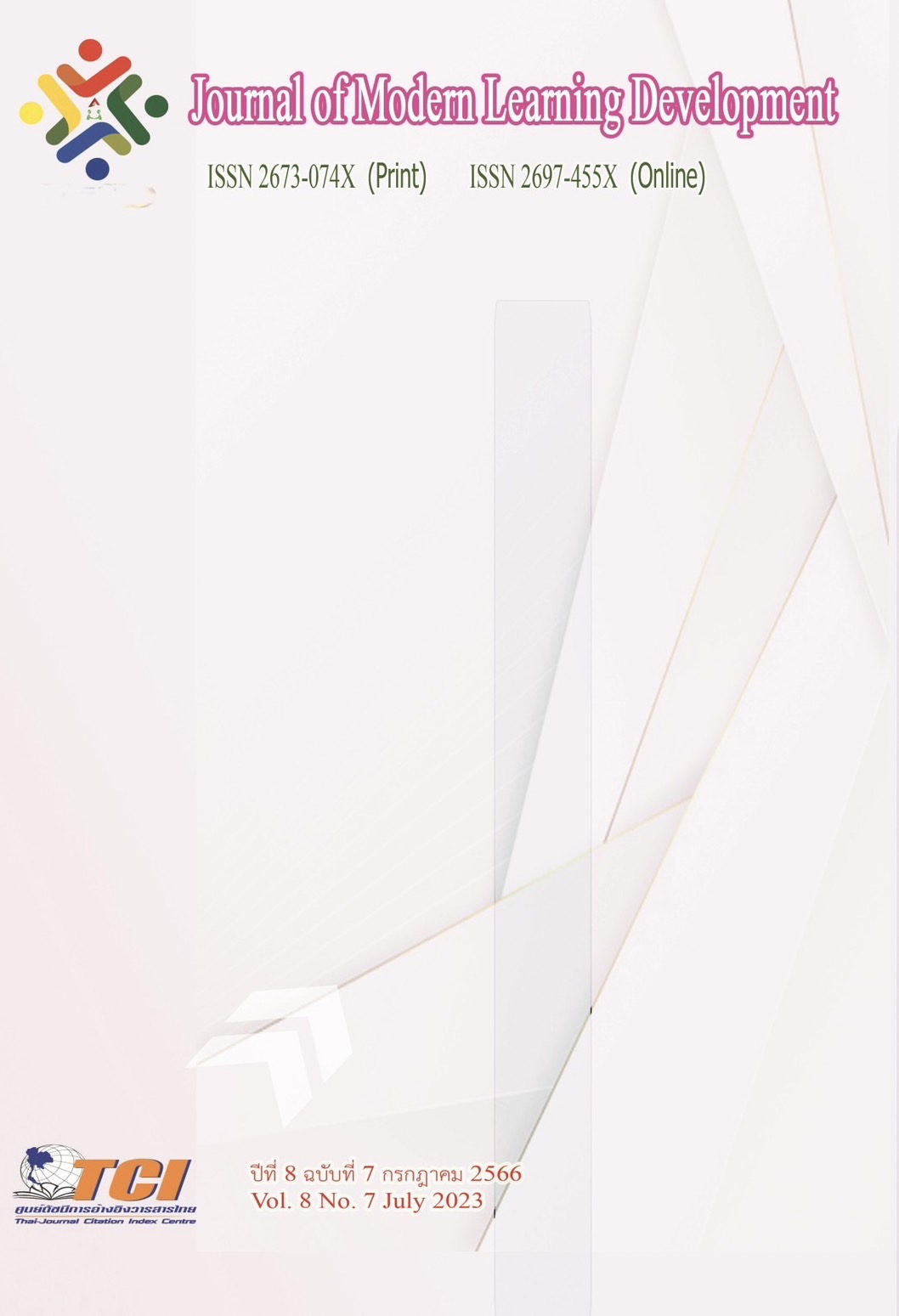The Development of the Human Beings in Accordance with the Ten Wholesome Courses of Action in Buddhism
Main Article Content
Abstract
The cuses on man’s development as human. The meaning is that those are the self-human beings. The human beings’ goal of life is the happiness, freedom and goodness of life that is the specific personal issue and again to develop by aiming at spiritual development or the behavior as the great principle. There are a lot of principles of Dhamma for development but in here, the Ten Wholesome Courses of Action are selected for study that the principle of this Dhamma was taught by the Lord Buddha for developing the human beings as the foundation in the advent of the Buddha. So the study of human development in accordance with the principle of the Ten Wholesome Courses of Action is used for constructing the good format of society that aims at constructing good environments for supporting human beings to develop the self-potentiality to arrive in good living. The more the society develops, the more the environment becomes great and to make human develop themselves easily. “We build up the best society to assist the good environments for the best development of human beings. The development of human beings here, not only to focus on the aspect of developing ability or various academic knowledge, but also means to develop the properties inside the personnel such as morality or spiritual development. To develop human beings is the continuous basic development for a long time and to watch man as human. So the importance must be given to all human beings that to develop human to be perfect human and to develop oneself to reach the ultimate goal of life in accordance with the principle of Dhamma.
Article Details
References
มหามกุฏราชวิทยาลัย. (2534). พระไตรปิฎกและอรรถกถาแปล ฉบับ 91 เล่ม. กรุงเทพมหานคร: โรงพิมพ์มหามกุฏราชวิทยาลัย,
พระปิฎกจุฬาภัย. (2550). มิลินทปัญหา. (พิมพ์ครั้งที่ 9). กรุงเทพมหานคร: ประยูรวงศ์พริ้นท์ติ้ง.
พระธรรมโกศาจารย์ (พุทธทาสภิกขุ). (2550). โพธิปักขิยธรรมประยุกต์. กรุงเทพมหานคร : ตถาคตาพับลิเคชั่นจำกัด.
พระธรรมโกศาจารย์ (ประยูร ธมฺมจิตฺโต). (2546). การเผยแผ่เชิงรุก. กรุงเทพมหานคร : โรงพิมพ์มหาจุฬาลงกรณราชวิทยาลัย.
พระพรหมคุณาภรณ์ (ป.อ. ปยุตฺโต,). (2544). การศึกษากับการวิจัย. (พิมพ์ครั้งที่ 2). กรุงเทพมหานคร: มูลนิธิพุทธธรรม.
พระพรหมคุณาภรณ์ (ป.อ. ปยุตฺโต,). (2546). พจนานุกรมพุทธศาสน์ ฉบับประมวลศัพท์. (พิมพ์ครั้งที่ 11). กรุงเทพมหานคร : โรงพิมพ์มหาจุฬาลงกรณราชวิทยาลัย.
พระพรหมคุณาภรณ์ (ป.อ. ปยุตฺโต,). (2550). การพัฒนาที่ยั่งยืน. (พิมพ์ครั้งที่ 6). กรุงเทพมหานคร: บริษัท สหธรรมิก จำกัด.
พระพรหมคุณาภรณ์ (ป.อ. ปยุตฺโต,). (2542). การศึกษากับการพัฒนาทรัพยากรมนุษย์. (พิมพ์ครั้งที่ 2). กรุงเทพมหานคร : สำนักพิมพ์มูลนิธิพุทธธรรม,
พระพรหมคุณาภรณ์ (ป.อ. ปยุตฺโต,). (2531). พัฒนาตน. (พิมพ์ครั้งที่ 2). กรุงเทพมหานคร: สานักพิมพ์โกมลคีมทอง.
พระมหาวุฒิชัย วชิรเมธี (ว. วชิรเมธี). (2553). ความทุกข์มาโปรดความสุขโปรยปราย. กรุงเทพมหานคร : พับลิชชิ่งจำกัด,
สุภีร์ ทุมทอง. (2557). อริยมรรคมีองค์ 8 ภาคปฏิบัติ. กรุงเทพมหานคร : ห้างหุ้นส่วนจำกัด ภาพพิมพ์.
สำนักงานราชบัณฑิตยสถาน, (2525). พจนานุกรมฉบับราชบัณฑิตยสถาน. (พิมพ์ครั้งที่ 2). กรุงเทพมหานคร: อักษรเจริญทัศน์.
Bukkyo Dendokyokai. (1998). The Teaching of Buddha. Printed by Kosaido Printing Co., Ltd,
P.A. Payutto. (2017).A constitution for living. Petandhome: Bangkok,
Somdej PhraNyanasamvara. (2535). Plan of life. Bang kok: Mahamakut printing,


